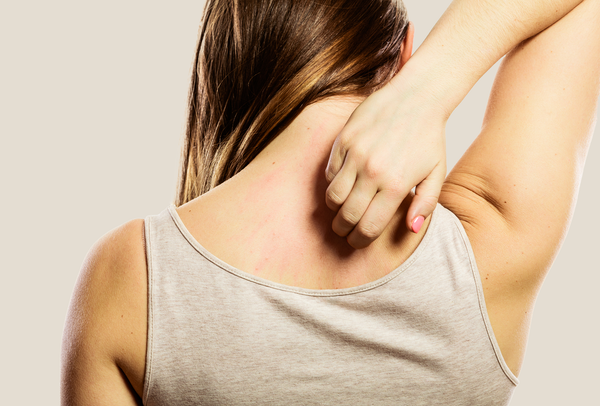The “skin barrier” is getting a lot of attention these days, and for good reason. As the uppermost layer of the skin, it is responsible for protecting the inside of our bodies from the outside world. Although dermatologists have always understood the skin barrier and the role it plays in both healthy and compromised skin, it’s important to know the basics as this term becomes more common in mainstream skincare conversations.
What is the skin barrier?
We already mentioned that the skin barrier is comprised of the outermost layers of skin cells, but there’s more to the story. In order to understand its structure, imagine the skin barrier as a brick wall, with skin cells being the bricks and a blend of lipids (including ceramides, cholesterol, and fatty acids) being the mortar that holds it all together.

Illustration courtesy of the National Eczema Association.
A healthy skin barrier creates a tight “seal” that helps prevent moisture from escaping and keeps irritants, pollution, and other allergens from entering. A compromised skin barrier is akin to a poorly-built brick wall that has gaps between the bricks and mortar. As a result, moisture can evaporate more easily, leaving the skin dry and more susceptible to irritation.
Factors that can affect the skin barrier
Simply put, everything in the environment our skin comes in contact with—good or bad—can affect the barrier and its function. Among those with the most damaging effects are:
- Extreme hot or cold weather
- Low humidity
- Harsh detergents or chemicals
- Hot showers and baths
- Skincare and hair care products that are drying, irritating or have the potential to cause skin allergies or contact dermatitis
- Fragrance (for those who experience irritation or contact dermatitis caused by fragrance)
- Sun exposure
- Stress
- Lack of sleep
- Certain medications
Signs of a weakened skin barrier
The most common signs that your skin barrier is compromised include dryness, flaking, itching, irritation, and increased sensitivity. Skin conditions such as seborrheic dermatitis, eczema, and psoriasis have all been correlated with a weakened skin barrier, although dermatologists and researchers aren’t sure if barrier weakness leads to symptoms or vice versa.
How to protect and maintain your skin barrier
The good news is, there are several easy, everyday steps you can take to bolster skin barrier function—and keep your skin feeling and looking its best.
- Wear sunscreen every day, all year-round.
- Apply facial moisturizer every morning and evening, and body moisturizer after showering or bathing.
- Opt for gentle soaps and cleansers (for your skin and hair).
- Wear rubber gloves when using any household cleaning products (natural or otherwise).
- Avoid hot showers and baths.
Even if you’re “woke” when it comes to your skin barrier and take steps to keep it happy and healthy, there’s one potential barrier-disrupter that is often overlooked: Hair care products. Think about it… Shampoo and conditioner touch every square inch of your skin when rinsed and leave-in products can come in contact with your chest, back, and shoulders. It’s also a fact that many hair care products are formulated with harsh ingredients that don’t do any favors for your skin barrier. And once the barrier is weakened, the potential for irritation caused by other common hair care ingredients can be increased.
All of SEEN’s clean, non-irritating, non-comedogenic hair care products were developed by Harvard-trained dermatologist Dr. Iris Rubin, who created each formula with the health of the skin and its barrier in mind. SEEN steers clear of potentially harsh ingredients like sulfates as well as common allergens like methylchloroisothiazolinone and methylisothiazolinone preservatives. Since synthetic fragrance can be a contributor to skin sensitivity, every SEEN product is also available fragrance-free and free of allergens such as limonene and linalool.
What have you done for your skin barrier lately? Just remember, taking steps to keep it in tip-top shape—including using the right hair care products—can make a difference in how your skin looks and feels from head to toe.




